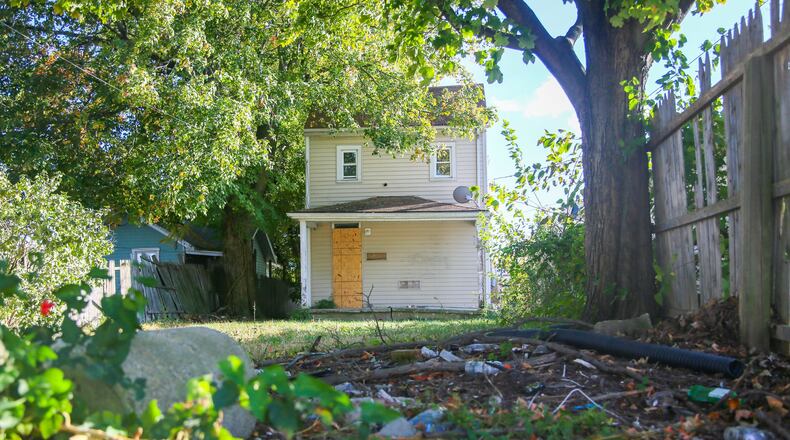Under draft legislation reviewed this week by Hamilton’s Ordinance Review Committee, movement toward designating a property as a chronic nuisance could be triggered by a few things:
- When three or more "chronic nuisance activities" have happened at a property on separate days during a 30-day period. Such an activity is "any criminal or delinquent act as defined by local or state laws," and where the person is the perpetrator of a crime, rather than a victim.
- When a felony drug offense under Ohio law has occurred on the property.
After procedures are followed, including notification of the property owner, and the owner is ordered to correct the situation, the city manager would be able to designate the home, apartment or business as a chronic nuisance.
That could trigger civil fines of $250 per occurrence, plus the more burdensome penalties of bills being sent to the owner for the costs the city faced in dispatching police or firefighters to the building — including the salaries that were paid to each safety worker while addressing the problems.
Police Chief Craig Bucheit noted: “If you’re selling drugs out of a property and we have to do a search warrant there, and it takes five or six officers to execute a search warrant, conduct a search there, and we locate felony drugs there, the cost of that action is going to be pretty expensive, as opposed to a lower-level criminal nuisance type that may only require a single officer.”
Tall grass will not lead to a chronic-nuisance designation, council members were told.
A public hearing on the legislation will be held 6 p.m. Wednesday, May 31, in city council chambers.
The matter is only one of the approaches the city wants to take to deal with substandard buildings and dwellings. A more controversial effort that might require apartment-owners to register with the city and have their properties inspected has not yet been taken up by an ad-hoc committee of landlords, property owners and others that was created early this year to find solutions to properties, especially apartments, that create blight in neighborhoods. The panel has met at least four times in recent weeks.
“The conduct by persons in residences and other buildings which, because of the volumes of calls and the types of calls, become a nuisance to the rest of the neighborhood, this is an attempt to deal with that issue,” Kathy Dudley, an assistant city attorney, told the committee.
“We do not want this in any way to be something which impacts victims,” Dudley said. “If you are a victim of a crime, be it domestic violence, be it stalking, be it harassment by neighbors, we are going to try to weed out those where the address is not the reason that has become the problem.”
City Manager Joshua Smith told council members the “chronic nuisance” legislation is low-hanging-fruit, compared with more controversial legislation the city is considering that would force landlords to register with the city, in part so the city could inspect their rental properties to make sure they meet standards.
Smith and Bucheit emphasized their goal is to resolve nuisance problems, not to declare chronic nuisances. In reaching that goal, the city will do its best to get in touch with property owners and open lines of communication to make the nuisances go away. There are two problems, however, city officials noted: Some property owners are incredibly difficult to contact, and some just don’t care.
In cases where there is no cooperation, liens can be placed on properties to recoup the unpaid bills and fines.
About the Author
